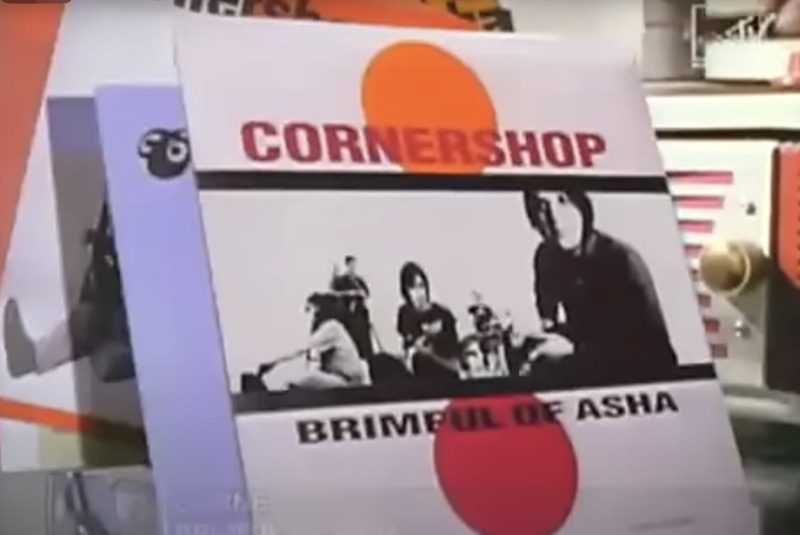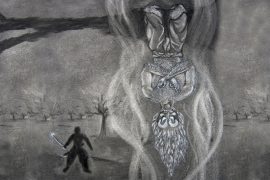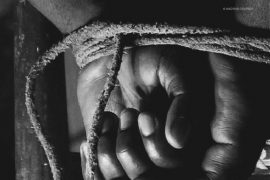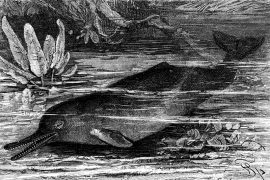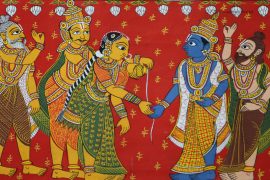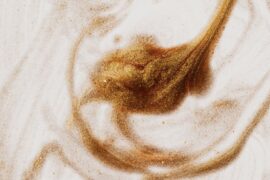The British indie rock band Cornershop published the song ‘Brimful of Asha’ in 1997, and it became a big success in the United States and the United Kingdom. The song was then remixed by FatBoy Slim in 1998, and it went to be #1 on the charts, dethroning Celine Dion’s Titanic theme song, ‘My Heart Will Go On.’ Eventually, the album went double platinum, marking their name on the international stage.
Cornershop is one of Britain’s most creative bands of the last 30 years, with eight albums of genre-skipping, pop history-foraging brilliance. Cornershop’s origins as a band started in 1987, when Tjinder Singh, the band’s vocalist, and Ben Ayres were placed in a house-share together at Lancashire Polytechnic.
Before establishing Cornershop with Singh’s brother Avtar and drummer David Chambers in 1991, they created a band named General Havoc. Singh says the band was initially formed ‘as a distraction to our very cold and damp living conditions.’
Before being introduced to bands like the Smiths and the Stooges, Singh grew up listening to traditional Punjabi music. Singh grew up in Black Country, UK, and became aware of the Black Country’s unique contributions to rock music during his adolescence. There was heavy music, which Black Country motorcycle gangs adored: Singh recalls a neighbour acquainted with bikers, including Led Zeppelin’s John Bonham.
“Black Country music was stripped down; it was harder. All of these notes per second in music today doesn’t make it any better. I mean, listen to Black Sabbath. They were so laid-back it was unbelievable!”
No Rock: Save in Roll, a song from England Is a Garden, was written as a homage to Black Country’s music, with its bluesy stomp echoing Robert Plant, a favourite in West Bromwich.
“People forget he married an Indian woman from Birmingham,” says Singh in an interview with The Guardian, ‘which says a lot about where his music was going, and continues to go.’
On No Rock: Save in Roll, there’s also a subtle sitar; this musical synthesis can be seen throughout Cornershop’s discography, possibly as a musical reaction to how tough integration has been for them in other ways.
The main single from their debut EP, England’s Dreaming, was released in 1993. It fused lyrics from the Smiths’ Heaven Knows I’m Miserable Now and Public Enemy to infuse indie with a protest against Morrissey.
Morrissey had wrapped himself in a Union Jack during a Madness show in July 1992, when the flag was very much a symbol of the extreme right. He’d also published contentious songs like The National Front Disco and Bengali in Platforms, aimed at a newcomer to Britain who wanted to fit in.
Around their EP’s release, Cornershop set fire to photos of Morrissey outside his record label’s headquarters. Some brushed it off as a publicity gimmick at the time, but Morrissey’s continuous racist actions prove their point. Morrissey recently made anti-immigrant comments – including donning a badge honouring the far-right for Britain party on America’s Jimmy Fallon show in May 2019.
However, by the mid-1990s, the perception of British music had shifted. Apache Indian from Birmingham was mixing bhangra and ragga to great success. Asian Dub Foundation, based in London, were regulars in the music press. The Asian underground movement gained traction (Talvin Singh’s first album, OK, would win the Mercury Prize in 1999), and the BBC’s Asian Network established a full-time station in 1996.
The accomplishment of Brimful of Asha still seemed like a watershed moment for the band. It discussed pop culture’s ability to pull people away from politicians’ false promises and national initiatives that displaced people in India.
The song pushed the names of Hindi cinema singers into the non-Asian British mainstream by blending big beats, guitar pop, and tambouras. On the A-side, Lata Mangeshkar and Mohammed Rafi are named, as well as Asha Bhosle, on whose name the title is based. Cornershop was not unaware that the name Asha also signified hope.
Singh and Ayres had differing recollections of the period after Brimful of Asha. Cornershop produced a Punjabi rendition of the Beatles’ famous song Norwegian Wood in 1997, with Paul McCartney and Yoko Ono’s permission. Ayres had two small children at the time, and he considers the band’s 1998 appearance on Blue Peter to be a career highlight. Both he and his daughter, Molly, who was five at the time, received Blue Peter badges.
Singh had a more difficult time. His mother had died unexpectedly in 1996. He had written indirectly about it in one of Cornershop’s top 30 songs, Sleep on the Left Side; he was still grieving. The song was about trying to remain positive while one is confronting that emptiness, he told Select magazine in 1998. In 2001, Singh lost his father just a month before the birth of their first child.
Cornershop has made albums in their own time in the twenty-first century. Singh claims that he had moments of tension and anxiety throughout the company’s early years. In 2009, Cornershop founded Ample Play, a label that distributes their albums and those of other artists they like. England Is a Garden, their most recent album in March 2020, has been in the works for almost a decade.
The title of the album was chosen ‘because to look at things from a garden point of view is quite nice,’ said Singh.
Cornershop’s ascent to fame was historic, as South Asians battled to establish their place in the world, particularly on the international music stage. The band’s name, ‘Cornershop,’ was inspired by the stereotype of the South Asian street-corner grocery store worker and was formed in 1991. Cornershop is here to stay and will not be forgotten. They considered it a few years ago but then realised something crucial.
“It’s not about being proficient, it’s about what you can do with it, and it’s the attitude,” said Singh. “And the ideas,” Ayres added. “The ideas,” Singh repeated. “You know, there’s no real cupboard we can be put in. We’re constantly misfiled. That makes it harder for us. But isn’t there something brilliant in that too?”
-30-
Copyright©Madras Courier, All Rights Reserved. You may share using our article tools. Please don't cut articles from madrascourier.com and redistribute by email, post to the web, mobile phone or social media.Please send in your feed back and comments to [email protected]

